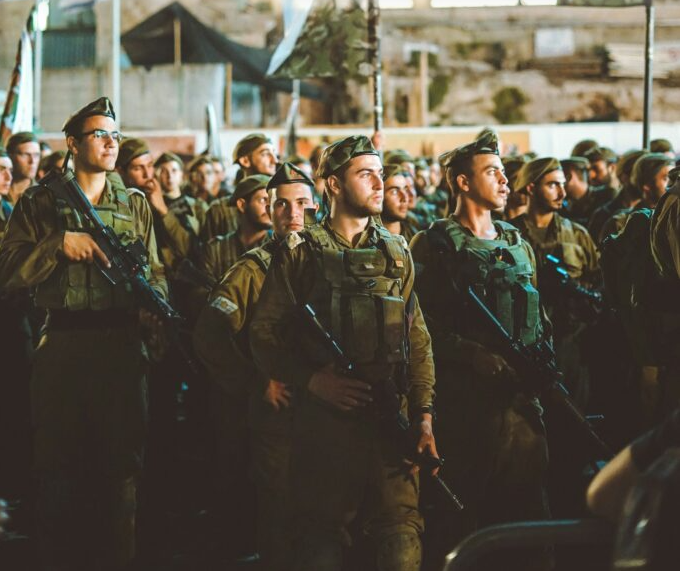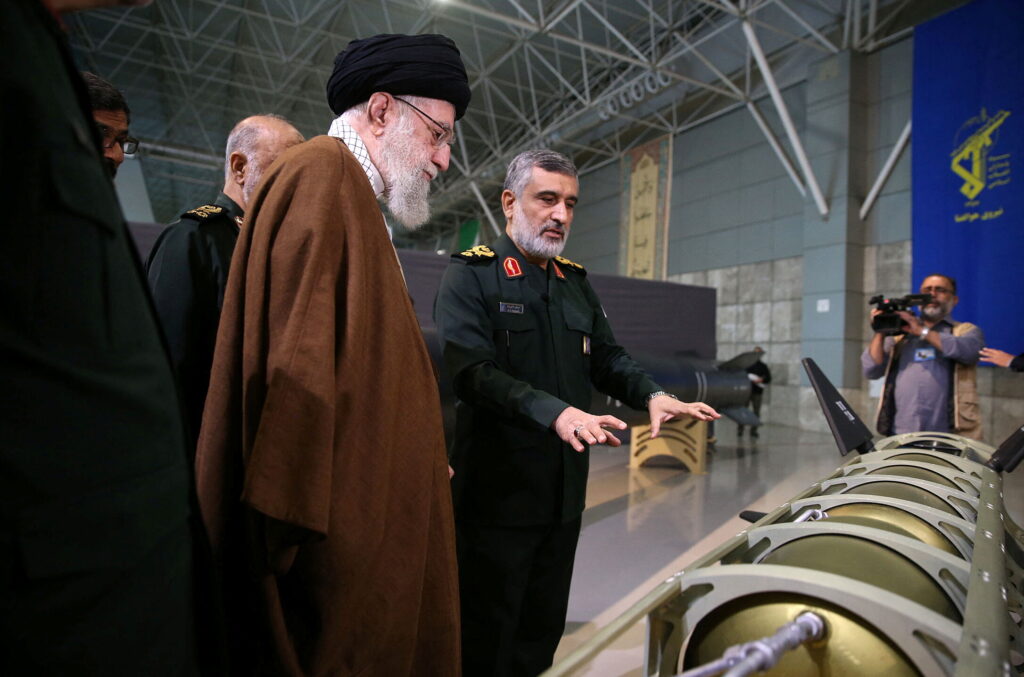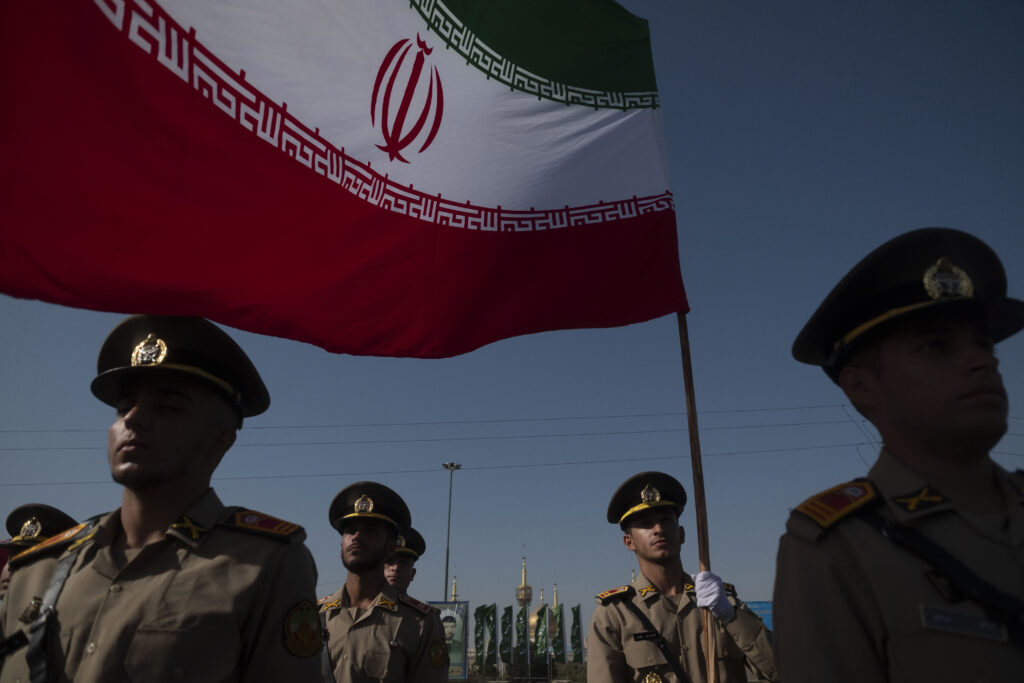‘Rising Lion’ vs. 'True Promise III': Who Won the War on Iran?

“Israel” lacks the strength to enter any war without support from Western countries.
Twelve days after the Israeli war on Iran erupted—and following U.S. President Donald Trump’s announcement of a brokered agreement—both sides rushed to claim victory, prompting widespread debate over who truly came out on top.
The war was launched on June 13, 2025, when the Israeli Occupation suddenly bombed Iran. Over the course of nearly two weeks, both countries exchanged heavy attacks. “Israel” dubbed its campaign “Rising Lion,” while Iran called its response Operation True Promise III.
On the first night, Israeli strikes killed several senior Iranian commanders, including the Chief of Staff and the head of the Revolutionary Guard, along with key nuclear scientists.
In the following days, the Israeli Occupation targeted critical military infrastructure: the IRGC’s main headquarters, a Supreme National Security Council meeting, and several air bases, defense systems, and strategic command centers.
By the second day, Israeli attacks expanded to economic and civilian infrastructure, hitting South Pars—Iran’s largest natural gas field—as well as oil depots, hospitals, state television buildings, and residential areas, resulting in numerous civilian lives.
Responding to the Israeli aggression, Iran began its retaliation on June 14, striking military sites in Tel Aviv and Occupied Haifa. It targeted the Israeli Occupation’s military intelligence headquarters (Aman) in Tel Aviv and Mossad offices in Herzliya. Occupied Haifa’s port—a vital economic and strategic hub—was also hit.
On the tenth day, the U.S. joined the war on Iran on the Israeli Occupation’s side, launching strikes on major Iranian nuclear facilities in Natanz, Isfahan, and Fordow, which had already been attacked earlier by the Israeli Occupation.
By the twelfth day, a ceasefire was announced—brokered by Trump with Qatari support. Both Tehran and Tel Aviv emerged from the war claiming victory, but the real winner remains a matter of interpretation. So who won?

Did ‘Israel’ Achieve Its War Objectives?
At the start of the Israeli war, Israeli Prime Minister Benjamin Netanyahu and War Minister Israel Katz outlined three “goals”: dismantling Iran’s nuclear program, weakening its missile capabilities, and pushing for “regime change.”
The Israelis made extensive efforts—through official statements, media, social networks, and Persian-language accounts linked to the Israeli Occupation army—to mobilize the Iranian people, encouraging them to take to the streets and spark a revolution against the state authorities, presenting it as the only way to change the government in Iran.
These efforts also involved the participation of the exiled Shah’s son, Reza Pahlavi, residing in the United States, and Maryam Rajavi, leader of the People's Mojahedin Organization of Iran (MEK), along with the armed terrorist groups including PJAK.
All this deliberate chaos aimed to incite the Iranian people to take to the streets and rise up to overthrow the Iranian government.
Dr. Bilgehan Alagoz, a professor of international relations at Marmara University, said “Israel” has long pursued a strategy in Iran centered on “regime change.”
“For years, Israel has implemented a series of military and strategic measures aimed at weakening Iran’s Revolutionary Guard,” Alagoz told Al-Estiklal. “This has included targeting key decision-making hubs, military bases, and vital energy infrastructure.”
While Alagoz acknowledged that “Israel” made significant progress toward its “military objectives” during its recent war on Iran, he stressed that the ultimate goal—overthrowing the government—remains out of reach. “This operation may have advanced Israel’s strategic agenda,” the expert noted, “but it ultimately fell short of delivering the decisive outcome they were aiming for.”
Dr. Mustafa Caner, assistant professor at Sakarya University Middle East Institute (ORMER), and researcher at Foundation for Political, Economic and Social Research (SETA) said “Israel’s” ultimate aim goes beyond “regime change,” it seeks to destabilize Iran.
In his analysis of the Israeli Occupation’s strategy to push for “regime change in Iran,” Caner said the objective should be viewed as a transitional step, not the final goal. “Israel sees regime change as part of a broader process, it has actively tried to involve the United States in the conflict, knowing it cannot achieve this on its own.”
“To pull Washington in,” he said, “Israel deliberately spotlighted Iran’s nuclear program as a global threat—and in that sense, it partially succeeded.”
According to Caner, U.S. strikes on Iranian nuclear facilities allowed Washington to declare its role in the war complete, and it has since begun stepping back. “Israel had hoped the U.S. would go further,” he added, “but that never happened.”
“Israel’s ultimate objective isn’t just regime change—it’s the fragmentation of Iran itself.”
Despite the damage inflicted on Iran’s military infrastructure, missile program, and nuclear sites, Caner emphasized that a full victory remained elusive. “The goal of toppling the regime was not achieved,” he said, “so we cannot speak of a decisive win.”
At best, he concluded, “Israel” scored “partial gains” on the military front.

The Iranian Position
Iran was the side initially attacked in the 12-day Israeli war, so it was in a defensive position from the start. As such, Tehran succeeded in thwarting “Israel’s” ultimate objective: “regime change.”
However, on the flip side, Iranian leaders—particularly Supreme Leader Ali Khamenei—have long declared their intention to “wipe Israel off the map.” If that remains Iran’s end goal, the war only underscored how far Tehran is from realizing it.
“In recent years, Iran has shifted to a defensive posture in its foreign policy. This pivot became especially evident after the 2020 assassinations of Qassem Soleimani and Mohsen Fakhrizadeh, which shaped Iran’s more cautious strategic outlook,” Dr. Alagoz told Al-Estiklal.
“Following Operation al-Aqsa Flood on October 7, 2023, Iran saw an opportunity to move from defense to offense, repositioning itself as a more aggressive actor toward the Israeli Occupation.”
“But that shift,” Dr. Alagoz added, “ultimately turned into a gamble—Iran’s performance in the 12-day war exposed major weaknesses and showed that it was far less formidable than it claimed.” According to Alagoz, the idea of “wiping Israel off the map” remains more rhetoric than reality.
Dr. Mustafa Caner echoed this sentiment. Speaking to Al-Estiklal, he said “Iran’s narrative about destroying Israel is primarily for ‘domestic consumption’—a way to reinforce the bond between the regime and the Iranian public.”
Dr. Caner described the latest war as fundamentally defensive for Iran. He emphasized that Iran is unlikely to engage in “direct conflict with Israel” as long as the U.S. continues to stand behind Tel Aviv. Iran, he added, had no intention of prolonging the war.
“Iran entered the war out of necessity—to defend its sovereignty and territory,” he said. “Its messaging was clear: if the Israeli strikes stop, so will ours.”
In that sense, Iran positioned itself as a victim of Israeli aggression and aimed to exit the war as quickly as possible.
Dr. Caner also noted that for years, Iran has pursued a strategy of indirect attrition against “Israel” through its ties with Hamas, Islamic Jihad, and Hezbollah. Yet, he cautioned, “realistically, Iran cannot destroy the Israeli state. Israel possesses dozens of nuclear weapons. That’s the hard truth.”
“So Iran may choose to drain Israel gradually, avoiding direct attacks whenever possible.”
“The hardline rhetoric,” he concluded, “is aimed squarely at domestic audiences and to shore up support.”

Iran and ‘Israel’: Strengths and Vulnerabilities
The 12-day Israeli war on Iran offered a revealing snapshot of each side’s strengths and weaknesses.
One key takeaway is that “Israel” is not capable of waging a full-scale war against a sovereign nation without the support of the United States and other Western allies. Throughout the war, “Israel” operated with substantial backing—both in weaponry and logistics—from Washington, as well as military support from the UK and France.
Despite boasting some of the world’s most advanced air defense systems—like the Iron Dome and David’s Sling—the Israeli Occupation was unable to fully shield its territory. Without American and European reinforcements, Israeli “defenses” would likely have been overwhelmed.
Even with this support, Iranian missiles managed to strike several high-value strategic targets inside “Israel.”
However, the Israeli Occupation did show notable success in intelligence operations inside Iran. Years of Mossad investment—worth millions of dollars—into a covert network paid off during the war’s opening phase. Analysts argue that without this deep intelligence infrastructure, “Israel’s” initial strikes would have been far less impactful.
Dr. Mustafa Caner noted that “the war confirmed Israel’s ability to operate freely in Iranian airspace,” using the airspace of weak neighboring states like Syria and Iraq to launch attacks.
He also highlighted the strength of Israeli Occupation’s espionage capabilities. “Israel’s covert network inside Iran proved decisive. Once again, Israel managed to secure broad Western diplomatic and military support, underscoring its global influence.”
Still, Dr. Caner pointed to some glaring weaknesses: “Israel showed that it cannot sustain a war effort against Iran on its own. It remains entirely dependent on American support. Also, the psychological endurance of its civilian population appears limited in prolonged war.”
On the Iranian side, the war exposed both resilience and serious blind spots.
According to Dr. Caner, Iran’s biggest vulnerability lies in its intelligence apparatus. “The Iranian security agencies—including the Intelligence Ministry and the IRGC—completely failed to detect or dismantle the Israeli spy network operating inside the country. It’s fair to say the intelligence structure collapsed under pressure.”
However, he emphasized that Iran’s missile program proved remarkably effective. Ballistic and hypersonic missiles launched from roughly 1,200 kilometers away managed to penetrate Israeli, American, British, and French air defenses, striking their intended targets.
“The ability of even a single missile to breach multilayered Western defense systems is a significant achievement and a technological leap for Iran,” he said.
Iran’s own air defenses, however, were largely neutralized from the outset. Dr. Caner noted that Mossad operatives and Israeli airstrikes took out key defense sites early in the conflict, rendering them ineffective.
“Many of Iran’s systems weren’t even activated until a day after the first Israeli strike,” he added. “That delay gave Israel a window to operate in Iranian airspace with minimal resistance.”
Dr. Bilgehan Alagoz echoed these concerns. He pointed to “Israel’s” ability to establish such a robust intelligence presence inside Iran as a critical gap in Tehran’s national security. “It’s a vulnerability that Iran must seriously address moving forward.”
Alagoz also pointed to the heavy losses sustained by the IRGC as a sign that Iran’s current security strategies require urgent review and reform.

Who Won and Who Lost?
When evaluating the 12-day Israeli war on Iran from a security and intelligence perspective, it’s clear there is no absolute winner or loser.
Regarding both sides’ declarations of victory after the ceasefire, Dr. Bilgehan Alagoz notes: “Although both parties gained some ground during the fighting, it’s difficult to claim a definitive victory.”
“Israel managed to achieve some military and strategic objectives, especially through attacks on Iran’s nuclear program and strikes targeting the Revolutionary Guard. These actions show that Israel partially fulfilled its goals.”
On the other hand, it is notable that Iran targeted cities like Tel Aviv and Occupied Haifa—some of “Israel’s” most liberal cities and strongholds of opposition to Netanyahu.
Dr. Alagoz suggests Iran aimed to stir internal dissent by hitting civilian areas in those cities, potentially fueling opposition against the Israeli prime minister.
“In the coming days, we might witness an increase in opposition voices against Netanyahu, which could significantly affect regional dynamics and strategic calculations,” he added.
Dr. Mustafa Caner also said that “both sides needed a heroic narrative—both for the international community and their domestic audiences.”
Commenting further, Caner said, “Both Israel and Iran sought to tell a story of bravery and triumph.”
“In Israel, this conflict bolstered support for Netanyahu, while in Iran, the government succeeded in rallying the entire nation behind it.”
“To maintain this image, both governments had to craft tales of victory and heroism for their people.”
“However, as I said before, this war has its costs and gains. Other players, like the United States, are also involved, so the reality is far more complex than a simple win or loss,” said Caner.
“Officials on both sides analyze this complex picture behind closed doors, but when addressing the public, they avoid confusion and instead sing songs of victory to please the ears of their people.”
Experts agree that neither Iran nor the Israeli Occupation achieved an outright victory or suffered a total defeat. The Israeli war on Iran revealed strengths and weaknesses on both sides.
“Israel” demonstrated strength in intelligence and securing Western support but showed serious vulnerabilities in defending itself without that backing.
Comparing the Iranian and Israeli populations, it became evident that Israelis were more vulnerable. During the war, many Israelis left the country when possible, while Iranians abroad chose to return home rather than flee. Iran succeeded in uniting its diverse population against “Israel” despite internal conflicts.
While Iran remains far from its goal of “wiping Israel off the map,” it’s equally clear that “Israel” lacks the strength to enter any war without Western support.
Following significant Mossad successes, Iran’s Revolutionary Guard intelligence and Ministry of Intelligence require serious reassessment.
Observers note that the ceasefire only halted rocket exchanges and does not mark the end of the Israeli war on Iran. The war is expected to continue in different forms, and time will tell whether it reignites into a full-blown confrontation.








